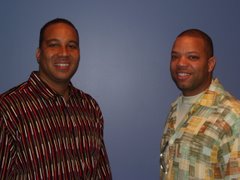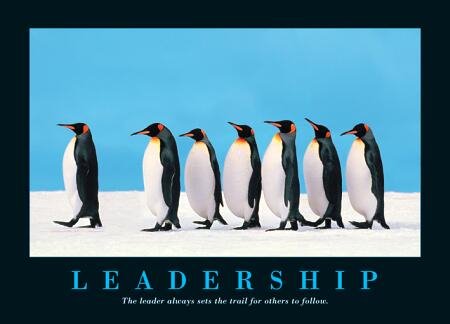How the Media Thinks for You Part 4: Watching the News with an Adverbial Perspective
We are talking about following the News media. But you will be able to take this information and these questioning strategies (AP) into your job, your church, family matters, current events, and you will be able to discern ulterior motives in every situation you face. This is practical and insightful information that can help you to better understand the world in which we live, so that you can make better decisions concerning any situation for you and your family. Remember, I am going to give you principles in the examples, so don’t miss the big picture. Follow the principle (the principle of asking the questions of the AP), and then take the principle and apply it to your world.
In the great television and book suspense stories (Whodunits), we’re always intrigued with “Who” the guilty party is. Whenever someone is involved in a situation, one of the first questions people ask is, “Who did it?” Answering the “Who” question will let you know who your friend or enemy is. “Who” are the big donors and corporations that financially support political issues, candidates and organizations that are against your beliefs? “Who” are the high priced lawyers and lobbyists that influence the politicians? “Who” are the high level executives that finance and promote negative music and television programming that is against your standards? These are your enemies. If you want to go even deeper than that (spiritually), “Who” influences them? Ask yourself the “Who” question when the news is trying to shove someone down your throat: a celebrity or an athlete who has no credibility is instantly an authority on world issues; political candidates are suddenly qualified to run cities, states and countries because they can raise a lot of money. “Who” are these people? “Who” is behind these people?
What?
This is basically an interrogative word used to find the true nature or identity of something, or the sum of its characteristics. Answer “What” and you will know “What” it is, and “What” happened. “What” is a close connection with “Why,” and it will help to make sense of the thoughts of those involved. “What” are they doing? “What” is the purpose of the media’s silence of the Bush Administration pushing the Security and Prosperity Partnership (S.P.P.), the North America version of the European Union (EU)? “What” is the purpose of it? “What” is the purpose of making a European Union, or a Pan-African Union, or an Asian Union? Ask “What” to find the true nature or identity of a person, place, or thing. Another example you may see in the news is a decrease in crime statistics. Lower crime is better, but a lot of times, the way it is reported is very misleading. Cumulative crime rates of certain types of crimes can truthfully and statistically be lowered by the increase of another crime. Do you understand? If one type of crime (murder or thefts) stays the same or increases slightly, and another type of crime (traffic violations) increases 100 fold, then in the cumulative percentage of crime, thefts and murders seem to be much less. It’s “sleight-of-hand”; don’t fall for this. Ask the question “What.”
Where?
This word determines location. If you answer the “Where” question, it may help to confirm or to refute some of the other questions, like “why” or “how.” I remember the movie a “Few Good Men” with Jack Nicholson, Tom Cruise and Demi Moore. In the movie, there were two soldiers that were accused of following an unlawful order from a superior officer. The prosecutor went after one of the accused soldiers and made him (the soldier) confess that he (the soldier) didn’t actually hear the commanding officer give the unlawful order, because he (the soldier) was late arriving. This seemingly minor error in location was part of the reason the two soldiers were found guilty. Details are so important! That soldier wasn’t even “Where” the order was given. So find out the “Where” and make the picture clearer. Also, listen to your children explain how something broke or is missing in the house. If you think they are hiding something, ask them to repeat the story again. Pinpoint the location!
This word determines time. Knowing “When” something happened can help you to develop a timeline. Putting events in chronological order can help one to make sense of a matter. In the movie “Premonition,” with Sandra Bullock and Nia Long, Linda (played by Bullock) created a timeline of events of things she saw. This helped her to decipher all of the things that were going on around her, and she eventually made sense of her situation. If you answer the “When” question, it may help to bring order to the circumstances that face you.
This word leads us to the answer of the manner or the reasoning of the scenario and/or sequence of events. If you answer the “How” question, you will begin to make sense of the situation. The mechanics of the way things were done will become clearer. Have you ever done something or had something happen to you or around you, and you didn’t understand it? Then when you learned about the science of it, you said, “Oh now I understand.” For example, when we were children, we were so amazed that a baby could be in a mommy’s tummy. But once we got older and learned “How” the baby actually got in there, we could better appreciate love, intimacy, conception, child development and birth.
This word answers the motive question. Sometimes knowing “Why” something happened is just as important as what happened because the “Why” may help to prevent or explain a future occurrence. If you answer the “Why” question, it may help to confirm or to refute some of the other questions, like “what” or “how.” For example, let’s look at the tragedy of 9-11. We can use other examples, but for the sake of this article we’ll deal with two issues. “Why” was the steel from the demolished World Trade Center not allowed to be scrutinized by investigators before it was all quickly shipped overseas? Isn’t a crime scene supposed to be examined thoroughly before any of the contents are allowed to be removed from the scene? People who tamper with a crime scene and the evidence usually get punished severely. Am I being consistent with standard protocol? Am I a conspiracy theorist for asking a question? I’m asking, not accusing. Don’t fall into their trap to label and demonize people who question; that’s one of their tactics to neutralize independent thought. Here’s another 9-11 question: “Why” was there no airplane fuselage, seats, luggage or airplane debris at the Pentagon when they said that an airplane crashed into it? There was none of these items on the lawn and there was none inside of the building. But surveillance cameras that filmed the incident from nearby establishments were seized and never released to the public. Interesting, huh? We were told that it happened and that the plane vaporized from the heat. Isn’t that ridiculous? It sounds like a fairy tale, and we live happily ever after. (I’m digressing again.) I’m only teaching you how to question things and make sense of things. Folks, the official 9-11 story doesn’t even make natural sense. So don’t believe it or anything else these people tell you. Question everything!
I want you to question everything and you should encourage your children, friends, co-workers, fellow parishioners and family members to do the same. Katie Couric, the financial gurus on Wall Street, Barak Obama, George Bush and Hillary Clinton aren’t going to encourage you to question and to challenge them. They go to the closed circuit meetings where they answer scripted, softball questions asked by people who are (sometimes) on their staff. But now you have some short, but powerful principles in action that you can use to better understand situations that you may have previously taken for granted. Practice these principles on your job; ask your boss “Why” the company lost revenues in a certain department? “How” is this new software going to increase productivity? Ask your pastor “Where” does the Bible teach a specific doctrine that he/she espouses? I’m not trying to encourage you to be unruly. Use tact when dealing with people, but don’t be a slave that just follows orders/rules blindly. Even Jesus answered the sincere and genuine questions. Encourage your kids to ask you “Why” you discipline them. Truth always dispels a lie; and right information always dispels ignorance. Remember that! Don’t feel uncomfortable if you don’t understand or know something. Ask questions and get informed. Live well!
















No comments:
Post a Comment